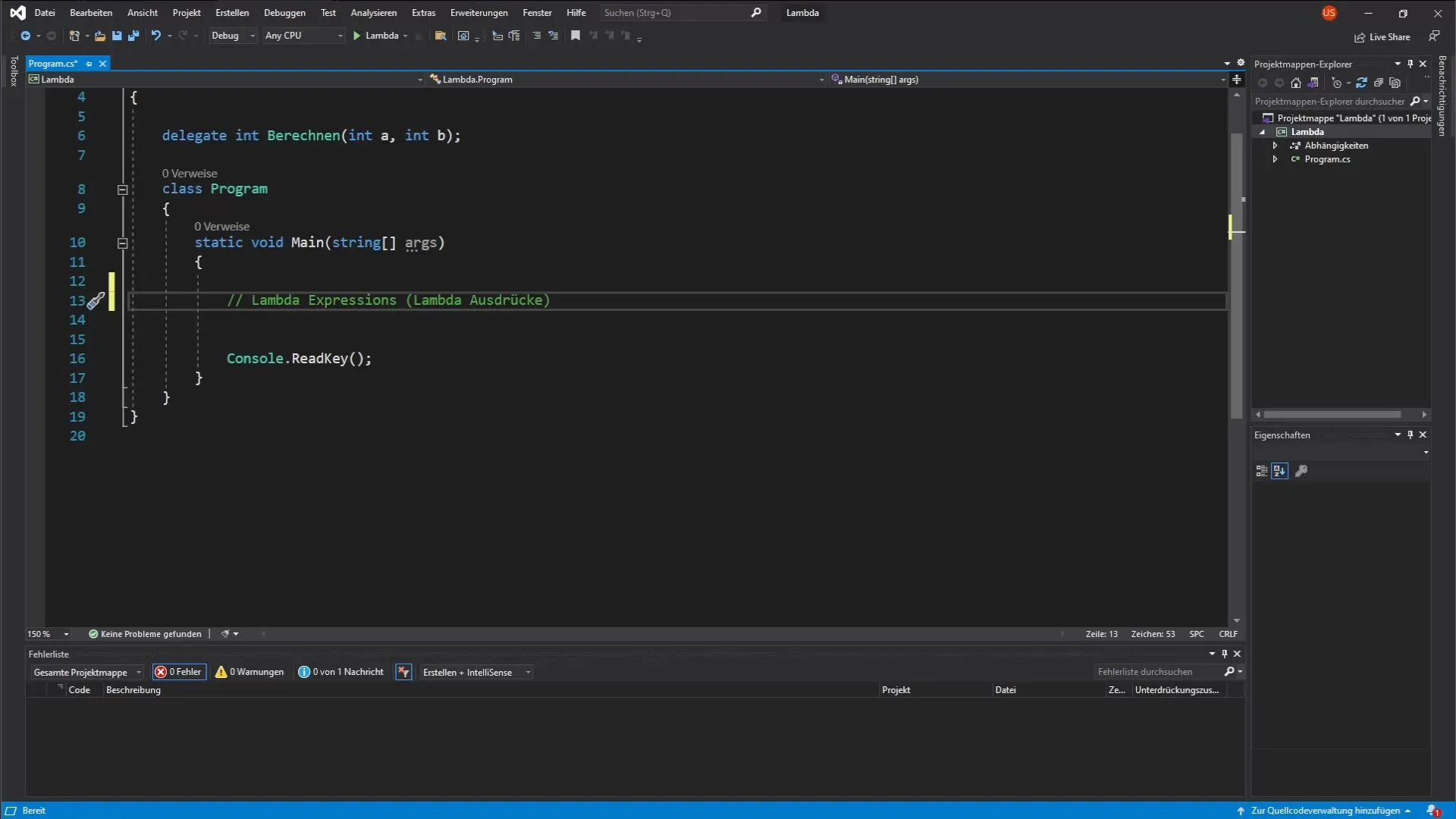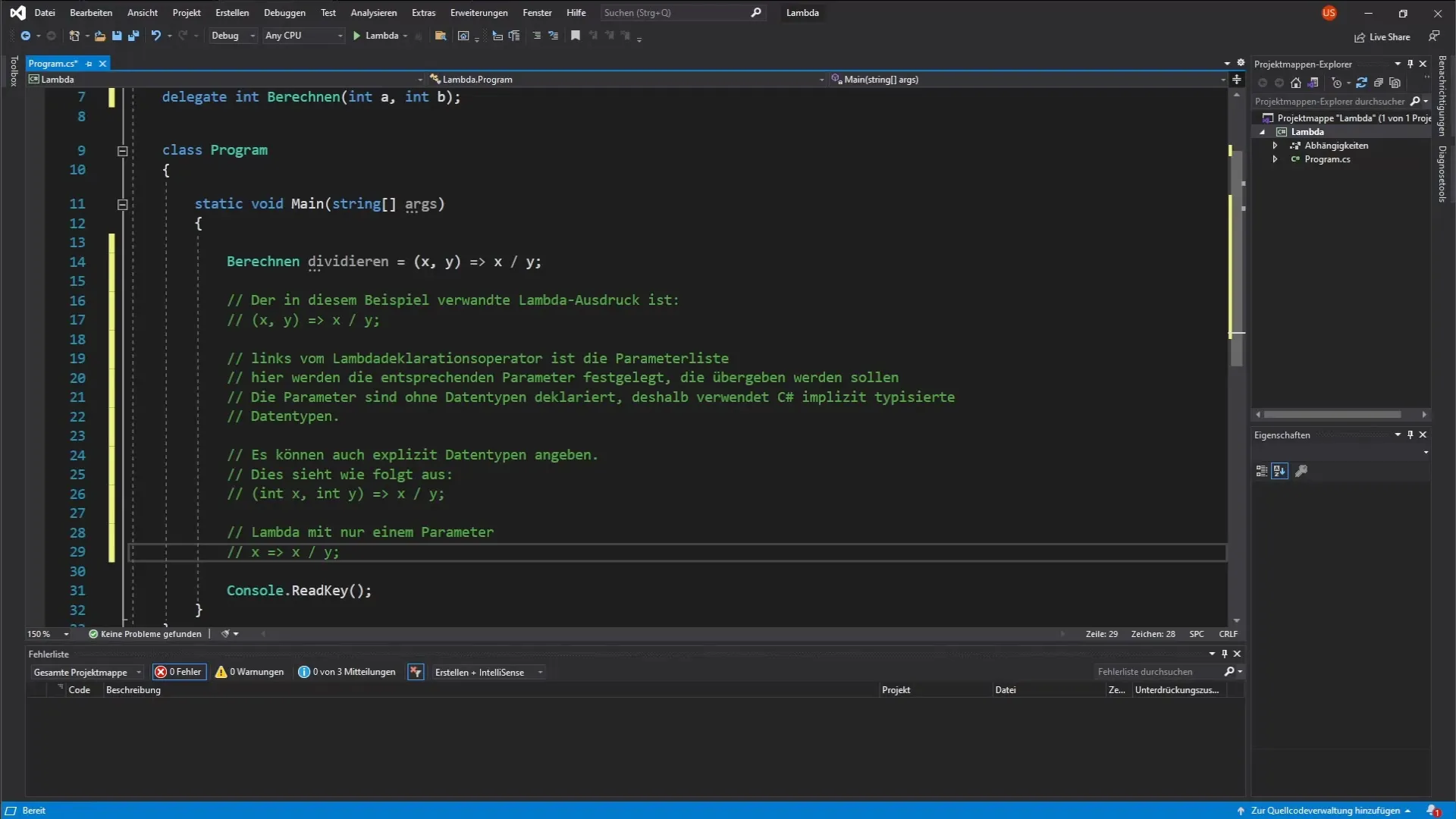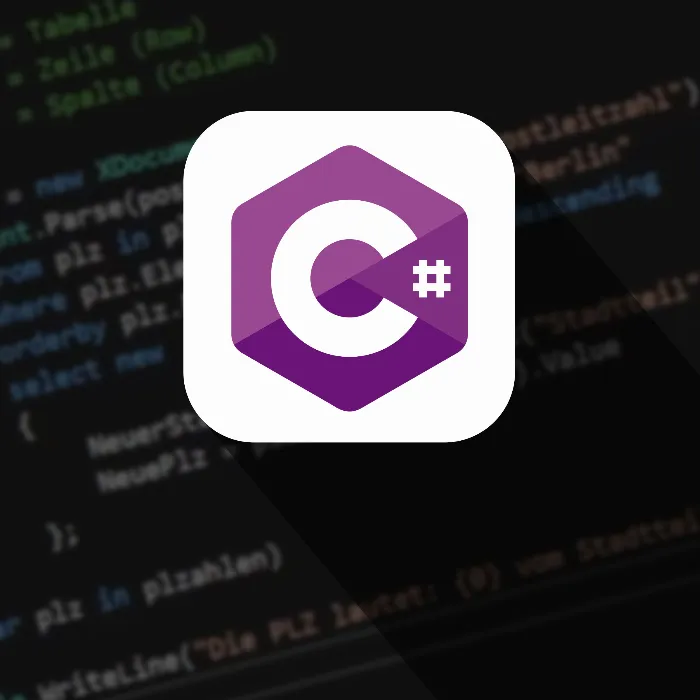Lambda-expressions are an extremely important concept in today's software development, allowing you as a programmer to write anonymous methods in a compact and readable format. In this guide, you will learn how to effectively use Lambda expressions in your C# projects.
Key Takeaways
- Lambda expressions allow the creation of anonymous methods in a concise format.
- They are often useful in conjunction with LINQ (Language Integrated Query).
- The lambda declaration operator separates the parameter list from the expression return.
- C# supports both implicitly typed and explicitly declared parameters in lambda expressions.
Step-by-step guide
1. Introduction to Lambda Expressions
Start with a simple understanding of what lambda expressions are. They provide an elegant way to define anonymous methods. This means you can write functions without giving them a name. This not only makes your code shorter but also more readable.

2. Using Lambda Expressions
Look at how lambda expressions can be applied in a typical programming situation. Consider a list of integers from which you want to find the first occurrence of an odd number. Here is a simple integer list you can use.
3. Fixing Compiler Warnings
If you run into compiler warnings while working with lists, check if the required using directives are present. In this case, you need to add System.Collections.Generic to work with lists. You can quickly add the missing directive by clicking the appropriate option in the editor.
4. Finding the Index of an Odd Number
Now you come to the actual use of lambda expressions. Create an integer variable and choose the FindIndex method to get the index of the first odd number in your list. The lambda expression is used here to define the search.
5. Understanding the Lambda Expression
Take a moment to look more closely at the lambda expression. It consists of a declaration operator and a condition that describes the result. The operator separates the parameter list from the expression return. In this example, you are looking for odd numbers through the modulo operation (x % 2!= 0).
6. Comparison with Traditional Methods
Show the advantage of lambda expressions over traditional, named methods. Normally, you would have to define a separate method to achieve a similar result. However, with lambda expressions, you can do this compactly and quickly, saving you time and effort.
7. Working with Delegates
Now let's consider a variant that uses lambda expressions in conjunction with delegates. First, you need a delegate to define a method. In this simple example, you will perform a division.
8. Defining the Delegate
When creating the delegate, you assign a name and define the parameter list. Note that you can omit the data types, allowing C# to infer them implicitly. However, you can also specify explicit data types, which is particularly useful when you want to clearly assign the types.
9. Lambda Expression in Action
Now use the lambda expression to define the division. This is done through the delegate, which performs a simple calculation. You can create the lambda expression in two ways: either with or without parameter parentheses. Make sure the syntax remains simple and clear.

10. Displaying the Result
To display the result of the calculation, use the Console.WriteLine method. You can display the calculation both as text and as a result. Run the code and see what result is returned.
11. Complexity of the Notation
Although using lambda expressions may initially seem a bit confusing, you will quickly appreciate the benefits of this compact notation. They allow you to make your code more concise and understandable.
Summary – Lambda Expressions in C# – A Compact Guide
Lambda expressions in C# are a powerful means of defining anonymous methods and can help you optimize your code. They are particularly useful when working with LINQ or interacting with delegates. The compact syntax may take some getting used to, but it will soon become second nature to you.
Frequently Asked Questions
What are lambda expressions?Lambda expressions are anonymous methods in C# that allow for a compact syntax.
Where are lambda expressions commonly used?They are often used in conjunction with LINQ (Language Integrated Query).
What is the lambda declaration operator?The lambda declaration operator separates the parameter list from the result of the expression.
Can lambda expressions be used without parameters?Yes, lambda expressions can also be defined without parameters.
What does the syntax for a lambda expression look like?The syntax consists of the parameter list, followed by the lambda declaration operator and the expression.


